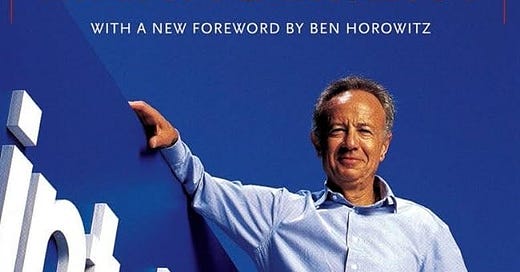High Output Management by Andrew Grove comes on high recommendations from Majmudar and Professor Allon. Grove stands on the shoulders of giants from by using the same production principles from The Goal by Eliyahu Goldratt and key concepts from Peter Drucker to breaks down his decades of experience into a no-frills management principles book . He defines a manager’s output as the output of the managers organization and peripheral organizations which he influences, and uses a few lessons from production principles human nature, and systems thinking to guide the rest of his work.
It’s funny timing to read Andy Grove’s work because I’m also reading Chip War right now. The semiconductor industry, and especially Intel’s position relative to the Japanese, was fiercely competitive and Grove pulled off management feats that most CEOs could only dream of. Judging by the book, it was always based on first-principles, setting the standard for culture from the top-down, using managerial leverage, and no BS. Avoiding corporate politics and getting back to the idea of output is not easy, but Grove was well-known for getting buy-in from people at all levels. I particularly loved his philosophy on why everyone should write reports and not everyone should throughly read those same reports, CUA (complex, uncertain, ambiguous) factor, explanation of Maslow’s Hierarchy of Needs, TRM (task relevant maturity), approach to avoiding group-think in meetings, process for performance appraisals, and rich analogies such as The Breakfast Factory and management as raising a child and being a coach.
Grove has also written Only The Paranoid Survive, which I intend to read at some point.
Keith Rabbois famously re-reads this book every year. Because management is a learn-by-doing process rather than a learn-by-observing, I’ll probably read it many times throughout my life. For that reason, I’m not going to post an outline (though here’s a link to someone else’s).
Books in queue:
Chip War by Chris Miller (history of the semiconductor industry)
Don't Shoot The Dog by Karen Pryor (a book on incentives theory learned from animal training)
A Brief History of Time by Stephen Hawking (a history of the universe via general theory of relativity and quantum physics)
Outlive by Petter Attia (somewhat fluffed up book on longevity)




